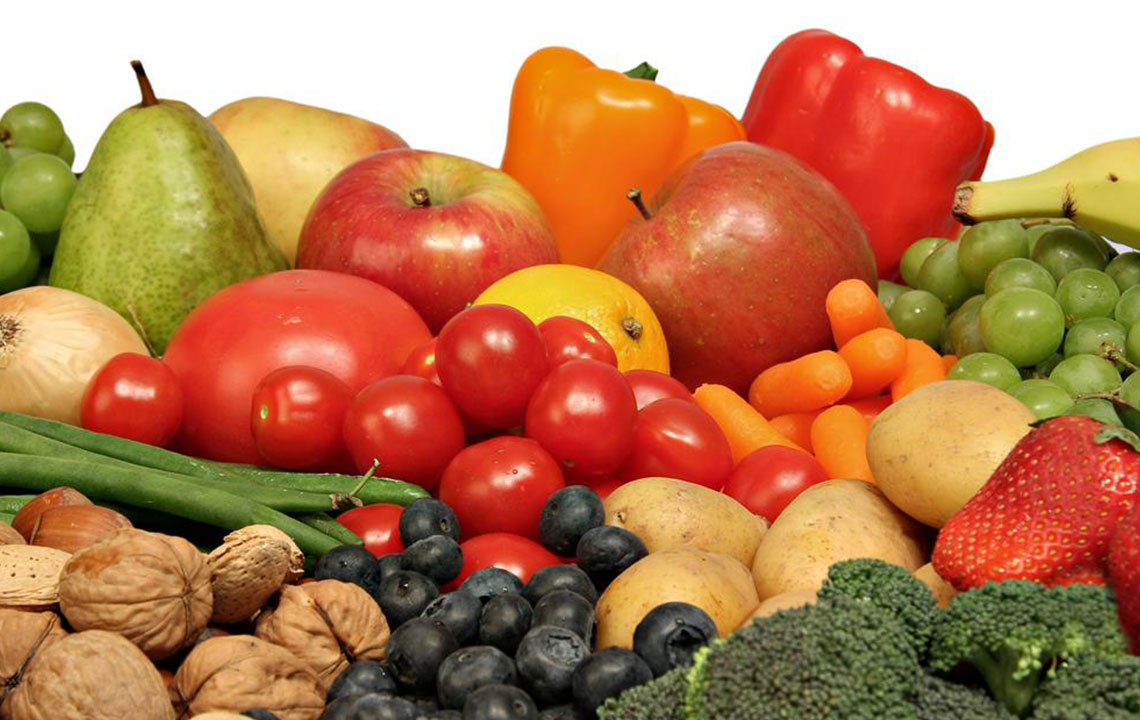Comprehensive Guide to Dietary Strategies for Managing Chronic Inflammation
Discover effective dietary strategies to combat chronic inflammation with a focus on nutrient-rich foods. Learn how incorporating fatty fish, berries, leafy greens, whole grains, nuts, healthy oils, and spices like ginger and turmeric can significantly reduce inflammation markers. This comprehensive guide emphasizes natural, unprocessed foods and lifestyle habits that support immune health and prevent long-term diseases, helping you build a healthier, inflammation-free life.

Foods That Help Reduce Chronic Inflammation and Support Overall Health
Maintaining a balanced and nutritious diet is essential for your overall health and well-being. Notably, the foods you choose to include or exclude can have a profound impact on inflammation levels within your body. Chronic inflammation is a hidden culprit behind many metabolic and degenerative diseases, including heart disease, diabetes, and autoimmune disorders. Adopting a diet rich in anti-inflammatory foods while avoiding inflammatory triggers can serve as a powerful tool to manage and mitigate long-term health risks.
Understanding Inflammation and Its Role in Your Body
Inflammation is a natural immune response designed to protect your body from injuries, infections, or harmful substances. Acute inflammation is beneficial and necessary for healing processes. However, when inflammation persists or occurs unnecessarily, it evolves into chronic inflammation, which can damage tissues, organs, and disturb normal bodily functions. Factors such as chronic stress, poor sleep quality, genetic predispositions, and autoimmune conditions can contribute to sustained inflammation.
Diet plays a pivotal role in either fueling or suppressing this chronic inflammatory state. Consuming foods high in refined sugars, processed carbohydrates, fried foods, preservatives, and artificial additives can exacerbate inflammation. Conversely, integrating anti-inflammatory foods into your diet can help to lower inflammation markers, improve your immune response, and promote long-term health.
Incorporating the following nutrient-dense foods can significantly help in reducing chronic inflammation:
Fatty Fish Rich in Omega-3 Fatty Acids
Fish such as Salmon, Sardines, Tuna, and Halibut are high in omega-3 fatty acids, which are renowned for their potent anti-inflammatory properties. Regular consumption of these fish can help lower levels of inflammatory markers like C-reactive protein (CRP). Omega-3s stimulate the production of adiponectin, a hormone that not only reduces inflammation but also enhances fat metabolism and improves cardiovascular health.
Colorful Berries
Blueberries, strawberries, raspberries, and blackberries contain powerful antioxidants known as flavonoids. These compounds neutralize free radicals and reduce oxidative stress, which are significant triggers for inflammation. Research published in reputable journals such as the Journal of Nutrition supports the anti-inflammatory benefits of berries, making them an excellent addition to your daily diet.
Leafy and Cruciferous Vegetables
Greens like spinach, kale, and broccoli provide high amounts of vitamin C, beta-carotene, and plant-derived compounds such as kaempferol. These nutrients help lower inflammatory cytokines and modulate immune responses. Cruciferous vegetables are especially effective due to their sulfur-containing compounds that support detoxification and reduce inflammation.
Whole Grains for Gut Health
Raw oats and other unprocessed grains promote the growth of beneficial gut bacteria. These bacteria produce butyrate, a short-chain fatty acid with powerful anti-inflammatory effects. Including whole grains in your diet supports gut integrity and reduces systemic inflammation.
Nuts and Seeds Rich in Antioxidants
Almonds, walnuts, chia seeds, and flaxseeds are nutrient-dense foods packed with antioxidants, healthy fats, and essential amino acids. Several studies indicate that increasing the intake of nuts and seeds correlates with lower blood levels of inflammatory markers, making them an excellent snack choice.
Healthy Vegetable Oils
Extra virgin olive oil, coconut oil, and canola oil contain bioactive compounds that inhibit inflammatory enzymes. Olive oil's oleocanthal, in particular, mimics anti-inflammatory medications like ibuprofen to reduce joint and tissue inflammation. Coconut oil offers antimicrobial benefits and supports metabolic health.
Beets for Detoxification and Anti-inflammatory Effects
Beets are rich in flavonoids, carotenoids, and betalain pigments. These compounds combat inflammation, enhance detoxification processes, and contribute to reducing the risk of metabolic and cardiovascular diseases. They also support endurance and energy levels due to their nitrate content.
Red Bell Peppers — Rich in Quercetin and Carotenoids
The vibrant red peppers contain high levels of quercetin, luteolin, and beta-carotene, which have anti-inflammatory and allergy-reducing properties. They are particularly beneficial for individuals with asthma, arthritis, or other inflammatory conditions.
Cocoa and Dark Chocolate
Rich in flavonoids, dark chocolate and natural cocoa products can help decrease inflammatory markers. Numerous clinical studies have demonstrated their potential in lowering inflammation-related risks when consumed mindfully and in moderation.
Ginger and Turmeric — Nature’s Anti-inflammatory Spices
Gingerols in ginger and curcumin in turmeric are powerful bioactive compounds that inhibit enzymes responsible for producing inflammatory responses. Regular intake of these spices can alleviate joint pain, reduce autoimmune flare-ups, and improve overall inflammatory status.
Adopting an anti-inflammatory diet emphasizes natural, unprocessed, and nutrient-rich foods. Reducing the consumption of processed foods, refined sugars, and artificial additives is crucial in lowering chronic inflammation. Incorporating a variety of the above-mentioned foods into your daily meals can drastically improve your health outcomes, boost your immune system, and promote overall vitality. Remember, lifestyle modifications such as regular exercise, managing stress, and getting adequate sleep complement dietary strategies for optimal health benefits.





